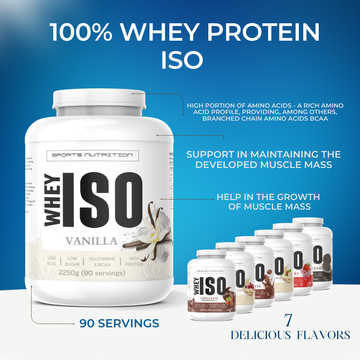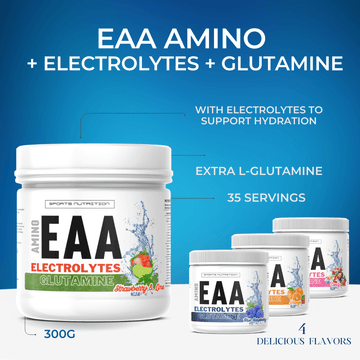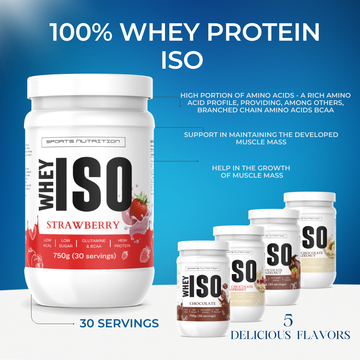Casein Protein
Casein Protein
Casein is one of the basic components of milk. It can be up to 80 percent. milk protein values. That is why it is one of the most popular types of protein supplements. What distinguishes casein from whey protein is that it does not dissolve in the acidic environment that characterizes the stomach. For this reason, it creates a specific form that can be slowly broken down for a long time, and the protein obtained in this way can be absorbed by the muscles.
Types of Casein Protein
Micellar casein - the most valuable, unprocessed, complete protein. Casein micelles transport insoluble calcium phosphate compounds in liquid form to the stomach where they are digested. Importantly, more than 90% of the calcium contained in milk is combined with casein micelles. So the conclusion is that micellar casein is also a valuable source of calcium.
Casein hydrolyzate - the hydrolysis process changes the protein structure from long-chain to shorter. This is to increase absorption as well as faster and easier digestion. Casein hydrolyzate is nothing else than casein subjected to the hydrolysis process.
Calcium caseinate - is a protein characterized by slow absorption. Rather, calcium caseinate itself is only found in matrices and is a blend of casein with other protein sources.
Different between Casein and Whey Protein
Casein and whey are two types of protein found in cow's milk, accounting for 80% and 20% of milk protein respectively. They are high-quality proteins because they contain all the essential amino acids that you need to get from your food because your body cannot make them. In addition, they are easily digested and absorbed.
Both proteins are high in amino acids, whey is considered the more anabolic (muscle-building) milk protein due to its ability to rapidly increase the level of amino acids in the blood, which are essential for boosting muscle protein. Casein, on the other hand, is often considered an anti-catabolic or muscle sparing protein as it provides a steady stream of amino acids over time which stops muscle tissue breakdown. For muscle growth to occur, protein synthesis must be greater than protein breakdown. Since whey increases protein synthesis and casein prevents muscle breakdown, both proteins, when taken strategically, can help build muscle.
Recommended use of Casein
A suitable daily dose of casein is between 0.8 and 2.2 g per kilogram of body weight. These ranges are quite large - to determine which dose is most appropriate, you should consider, among other things, the intensity and number of daily workouts, as well as the overall condition of the body.
Casein should be used at night - Experts recommend taking casein as the last meal before going to bed or adding it to dinner - then it will inhibit the feeling of hunger while protecting muscle tissue from harmful breakdown.
The supplement can be used in breaks between meals or as a meal on its own - If you know you are going to have long periods without food (e.g. a non-snack journey), then it is a very good idea to consume casein. The supplement will allow you to function without the annoying feeling of hunger.















